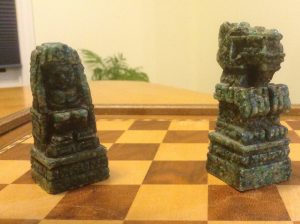
As I Would Have It
Catherine Cookson
Our Father
Who is as a power
Through all the universe,
I would like to revere You,
And be happy in doing so.
We will take it at the start
That goodness alone
Comes from You and no evil;
We want from You the power
To earn our living
In a way that will bring us contentment,
And the power to resist harming human or animal,
And the power to forgive ourselves our misdeeds,
And the power to resist anything
That our deep heart tells us is wrong,
And the power to direct our mind
To the realization that we are part of a great mystery
That will one day be made clear to us,
And hope that this will help us to come
Near to You and say,
In all humility,
Thy will be done.
The poem above was written by someone who, in the foreword to her book emphatically states “LET ME MAKE MYSELF PLAIN, I’m an agnostic.” It makes me smile, because some of my favourite people have been agnostic. I admire their honesty, their willingness to search for Truth, their casting aside of antiquated God images.
It took me a long time to even begin to decipher the agnostic vocabulary, because most of the time they abhor trite cliches and assiduously avoid religious language. It was only when I began to think like a poet that I saw that their actions often contained deeply moving imagery that echoed symbolic meanings embedded in Scripture. It took time to ponder and puzzle out these enigmas, but they were all the more significant because they came from a searching heart that would not settle for pat answers. Sometimes they even came out of a suppression of belief, as conversely, a believer would suppress their doubts.
Whereas I once would have heavily emphasized words, I came to see that God talks in pictures all the time, so that even a child can understand. He reaches out to us in music, in art, in the names of people and places, in the lavishness and grandeur of His creation all around us. These pictures are like the hieroglyphic symbols of an ancient alphabet, clues strewn all around us. And I saw in them that all of us are loved by God.
I am grateful to those agnostics who have opened my eyes to these treasures. Hidden in plain sight, in ordinary events and ordinary people and ordinary things are ever-bearing metaphors and parables that bring richness and beauty and a eternal dimension to everyday life.

